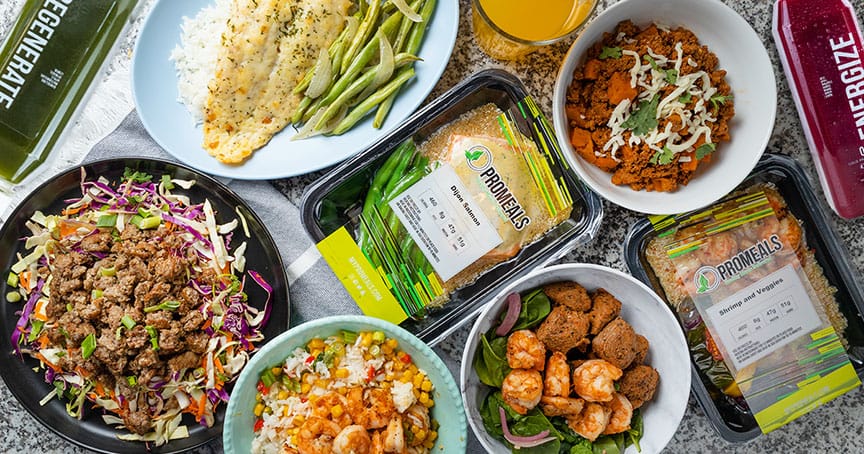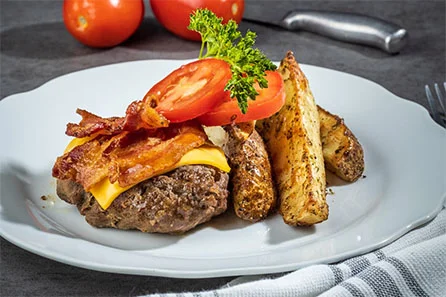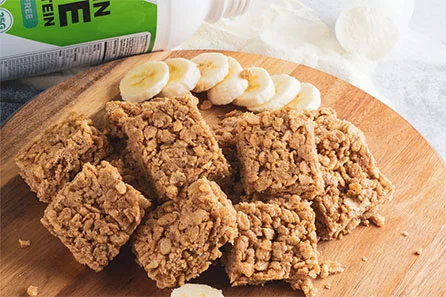Proteins, Fats and Carbohydrates are the basic components of our diets. Yet some of us are confused as to what each of these are and whether or not they are good for us. All three are classed as Macronutrients (or macros) as they are required in large quantities within our diets; but what exactly are these three Mighty Macros?
- Proteins. Proteins are an essential part of every living organism. They are the structural component of body tissues (hair, muscles etc.) and their primary function is to help you grow and repair.
Other functions include:
- Enzymatic Function
- Transport Function – as in other nutrients round the body
- Hormonal Function
- Immune Function – antibodies
- Buffering Function – PH maintenance in blood
So as you can see, Proteins play a big part in our makeup and therefore are integral to our diets.
However, some of us believe that all of our protein comes from meat, and this is not true. Other great sources of protein include vegetables/plants, beans, chickpeas, eggs, nuts, seeds, tofu, oats, seitan, quinoa, soy, and the list goes on. No one has ever been found to have a protein deficiency, as protein is apparent in the majority of things that we eat.
You ingest whatever happened to your food before it got to your plate, as well as the food itself. So if your food was pumped full of hormones, carried diseases or has been injected with preservatives you are taking that in too when you eat it. So make smart choices, do a little bit of research into where your food has come from and mix it up when it comes to your protein. Remember variety is a key component to a healthy diet.
- Fats. What do fats do?
- Provide a protective layer for organs
- Provide Essential Fatty Acids (EFC)
- Act as a carrier for certain vitamins and antioxidants
- Insulates body and preserves energy
- Forms brain tissues and nerve membranes
- Are needed to make hormones
Fats are an important part of our diet but a lot of us are scared of them due to their name.
Essential fatty acids are named so for a reason – they are essential! They boost your metabolism, reduce inflammation and help depression, to name a few in a long list of things that they actually do for us.
So sure, fat may have the highest calorific value out of our three mighty macros but you should not be cutting it from your diet; instead you should just be being more mindful of the portions you are plating up. Don’t be eating a handful of nuts, followed by a spoonful of nut butter, followed by a yoghurt, 2 avocados, then some cheese and olives, a slab of red meat. Fats are important! Don’t be scared of them! Just eat them in moderation, another key element of a healthy diet.
- Carbohydrates. Unfortunately, Carbs have also been given a bad name alongside Fats. When you prescribe to any quick-fix diet the first thing you will probably notice is the lack or complete non-existence of carbohydrates within the plan. The trouble with this is it is not sustainable! Meaning the moment you start to eat carbs again the ‘progress’ you made will disappear.
Carbs provide us with energy, maintain our blood glucose levels, play an important role in our gastrointestinal functions as well as having an important role in the structure and function of cells, tissues and organs. The issue when it comes to carbohydrates is where we get them from and how much we pile onto our plates (similar to fats).
Again (like proteins), carbs are found in more places than just the generic bread, pasta, rice and potatoes that we are programmed to see as our only sources of carbohydrates. In reality, we will find carbs in:
- Grains: bread, rice, cereal etc.
- Legumes: beans and other plant-based proteins.
- Vegetables: especially starchy veg such as potatoes and corn.
- Fruit: whole fruit and fruit juice.
- Dairy: milk, cheese, ice cream etc.
- Sugary Snacks: biscuits, cakes, sweets, etc. (these should be limited)
Much like protein and fats, it's important you are including carbs in your diet but that you are conscious of where you are getting them from. You should aim to choose wholegrain as often as possible, be aware of your portion sizes and avoid or limit refined carbs – your processed, low fiber, sugary foods. But Carbs should not be eliminated from your diet!
We need a diet rich with protein, fats, and carbohydrates but you should be aware of where your food is coming from, how much you are ingesting and ensure you are finding your macros from a variety of different places.
Variety. Moderation. Balance.
So don’t go on a diet. Go and enjoy your diet (aka your food). Mix it up. Experiment with ingredients and flavors. Feed your body and your soul.










